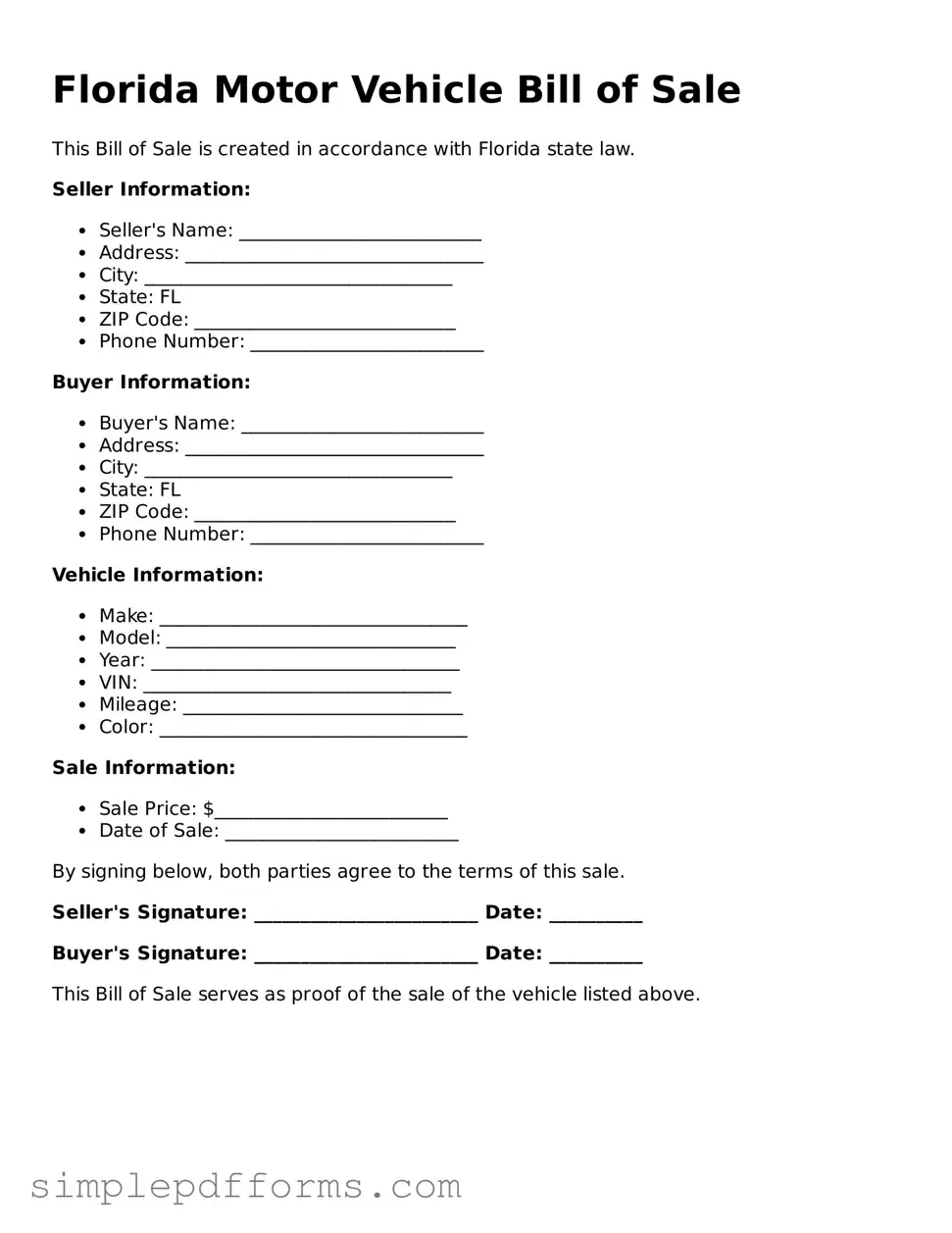Attorney-Verified Motor Vehicle Bill of Sale Document for Florida State
The Florida Motor Vehicle Bill of Sale form is a crucial document used to record the sale and transfer of ownership of a motor vehicle in the state of Florida. This form not only provides proof of the transaction but also helps protect both the buyer and seller by detailing essential information about the vehicle and the terms of the sale. Understanding how to properly complete this form can make the buying or selling process smoother and more secure.
Open Motor Vehicle Bill of Sale Editor Now

Attorney-Verified Motor Vehicle Bill of Sale Document for Florida State
Open Motor Vehicle Bill of Sale Editor Now

Open Motor Vehicle Bill of Sale Editor Now
or
Get Motor Vehicle Bill of Sale PDF Form
Your form is waiting for completion
Complete Motor Vehicle Bill of Sale online in minutes with ease.